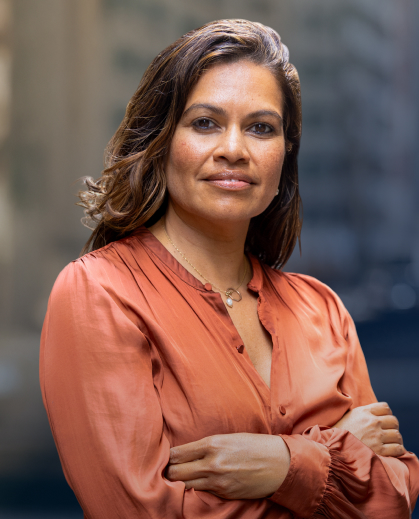Gillian Miles is a national public sector leader who, in a career spanning close to four decades, has driven significant change, chiefly in transport and government. She loves nothing more than working with others to fix a challenging problem.
Dr Gillian Miles has led national, state and local organisations to implement policy, business and organisational reforms as head of the National Transport Commission (NTC), Transport for Victoria, the City of Greater Geelong, and through deputy secretary roles in community development and transport portfolios. She established the National Women in Transport Network and led the development of the National Rail Action Plan while at the NTC.
As a commissioner at Infrastructure Australia, Miles advises the federal government on national infrastructure investments. As chair of the Rail Industry Safety Standards Board (RISSB) and the Victorian Chisholm TAFE, she is leading both organisations through a period of change. Miles is also a director on the Heavy Vehicle National Regulator board. Through her advisory company, Elucide, she works with executive teams in industry and the public sector.
What inspired you to seek your first board role and how did you secure it?
I’d been working in government for a long time, had senior roles in transport and I’d been involved with a lot of boards.
My first board role was with Roads Australia, when I was head of Transport for Victoria. I was representing the transport portfolio and learned a lot very quickly — not least about representing the people who put me there. It was really useful to enter the boardroom that way. It was a soft landing, having a big department of people to help with what you need to say and do.
I was there because I represented a voice from government that industry was looking for — and because I had the biggest job in transport and a history as a public servant in transport, dating back to VicRoads in the mid-1990s.
The important bit is that people know you, know you’re available, what your interest areas are and where you’re interested in actually playing on a board. It’s hard to get on boards if people don’t know who you are, even if you’re the most skilled person in the world.
What critical skills helped you get there?
When I finished up as head of Transport, Roads Australia invited me to come back onto the board. I’d had conversations with board members about diversity in the transport sector, which is one of my passions.
I’d been doing that publicly in my roles with the National Transport Commission and Transport for Victoria, and they were looking for someone who was happy to champion diversity around the board table.
We did an amazing piece of work — a first for Roads Australia — creating a diversity plan that went beyond gender. This was: how do we bring young people into conversations about road construction and running road networks? How do we bring First Nations communities to the table, not just as a process or part of building a road? How do you genuinely make connection with the First Nations community?
Diversity of thought is really hard to grab hold of. It’s about opening yourself up to the external world and listening to other voices. Then there’s gender, of course. In transport, there’s always gender. We set up a diversity committee and I was its chair. Now it’s full-bore. Roads Australia has well-developed programs — an Indigenous action plan, a diversity plan and percentage indicators for women on the board and on committees.
I like to tackle problems. My director superpower is I bring a view driven by systems logic. Let’s not just band-aid things. Let’s think about the ecosystem we’re in as an organisation. I spend a lot of time as a director thinking about those things. How do we either manage risk or put a new business activity in place within the ecosystem, not just within our bandwidth?
What was your most valuable learning in your first board role?
With roles in the public sector, you’re always focused on governance. In a portfolio like transport, you’re trying to make sure no-one does anything wrong, but also seizes opportunity.
On the Roads Australia board, I learned a lot about how to bring that to the table — the knowledge of governance itself. I still get surprised how little people know about governance and what they can and can’t do. But also how to use governance as a tool to make things happen.
Another important thing for me is that we know a lot of directors have come from big roles running organisations, but there’s a difference between focusing on the doing and focusing on the strategy, the risk, the assurance and the opportunity. It’s a different mindset. Of course you’re there to help the CEO, but your jobs are different. It’s about bringing different eyes to the board table, it’s a conscious thing you have to do.
I do bits of consulting, telling people, “You should do this or that.” But you don’t do that around a board table, you do something different. You challenge with a question, not an answer. The start of a journey around a board in your own right is learning who you are, what you bring and how you navigate the system to get something to happen. It’s an important skill to learn, because it’s different to navigating in your job. You’re relying on different skills to make things happen.
I’m not a quiet director. I like to engage and participate a lot in the actual content and issues we’re dealing with around the board table.
What advice would you give to C-suite executives or emerging directors seeking their first board role?
To think very hard about where you’re up to career-wise. Is it the right step? A lot of people find boards hideously boring. There’s a lot of reading, a lot of heavy stuff to get through. Is that where you want to spend your brain power?
Career-wise, have you got time? Life-wise, can you fit it in? You have to commit time to boards, you can’t just turn up for the meeting then go again.You’ve got to give it quite a bit of intellectual time, at the very least.
My other advice is to think very clearly about the “why”. Why this board? What are you bringing to this board and what does this board give you? It’s an important conversation to have in your head. Given most of us who come on boards have been doing big day jobs, make sure you’re ready to step out of the delivery logic into a governance logic. You’re accountable for the organisation in a different way.
I had someone join a board and I told her to be board-ready. She was overwhelmed, so did the AICD course. I asked if it made her feel better. She said, “Worse, now I know how accountable I am.” That’s important stuff for people to know when they step onto boards.
This article first appeared under the headline 'The systems thinker' in the October 2025 issue of Company Director magazine.
Latest news
Already a member?
Login to view this content



.jpg)
